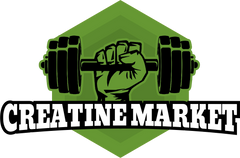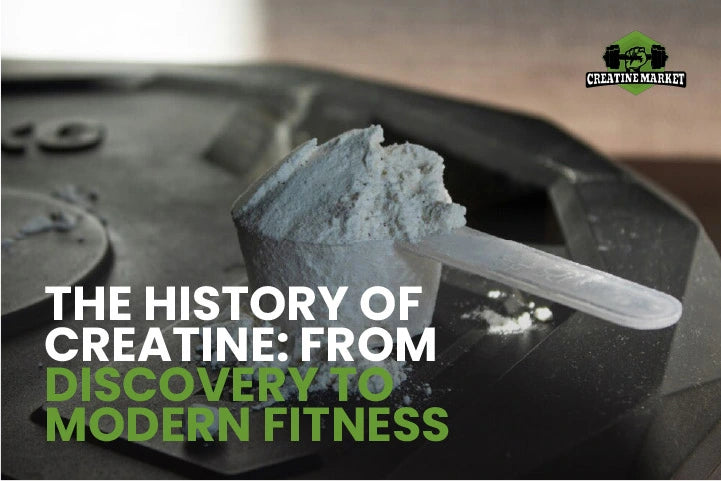Are you thinking of stepping up your fitness game, and wondering who should take creatine, or if creatine is right for you? Making the decision to start any supplement regimen requires careful consideration. This guide will help you understand if creatine supplementation aligns with your fitness goals and lifestyle.
Who Should Take Creatine?
Creatine supplementation can benefit a wide range of individuals, making it one of the most versatile and well-researched supplements available. Athletes and bodybuilders are prime candidates for creatine supplementation, as it enhances strength, power output, and muscle growth during high-intensity training.
Strength athletes, including powerlifters and Olympic weightlifters, can particularly benefit from creatine's ability to improve maximal force production and recovery between sets. Team sport athletes who rely on explosive movements, such as football players, basketball players, and sprinters, may see improvements in their performance during short, intense bursts of activity.
Recreational gym-goers looking to build muscle and improve their workout performance can also benefit significantly from creatine supplementation. Vegetarians and vegans are especially good candidates since they typically consume less dietary creatine from natural sources.
Aging adults can use creatine to help maintain muscle mass and strength, potentially reducing age-related muscle loss. Recent research also suggests potential cognitive benefits, making it interesting for students and professionals seeking mental performance enhancement.
Is Creatine Right For You?
Creatine isn't exclusively for bodybuilders – its benefits extend to a wide range of individuals. If you regularly engage in high-intensity activities, want to increase strength and muscle mass, or participate in sports requiring explosive movements, you might benefit from creatine supplementation.
Did you know that creatine is particularly valuable for vegetarians and vegans? It is a way to add creatine to your diet without having to eat red meat, which is where creatine comes from.
When Should a Beginner Start Using Creatine Supplements
The best time to start taking creatine is when you have established a consistent workout routine, typically exercising at least 3-4 times per week with resistance training. Your nutrition should be reasonably balanced, meaning you're eating enough protein and calories to support your training goals. Check out our Beginner's Guide to Creatine if you fall into this category of a fitness enthusiast.
Before starting creatine, you should understand basic principles of hydration since proper water intake becomes even more important when supplementing. It's also wise to start creatine when you're in a period of consistent routine, rather than just before a vacation or major life change, as consistency is key for seeing benefits.
Perfect Timing for Starting Creatine Use
The ideal time to begin creatine supplementation often coincides with specific fitness milestones or goals. Many find success starting when beginning a new strength training program or preparing for athletic competition. It's particularly effective when you're looking to break through a fitness plateau or entering a dedicated muscle-building phase.
Signs of Readiness
Before starting creatine, ensure you have the foundations in place. A consistent workout routine and solid nutrition basics should already be established. Understanding proper hydration is crucial, as creatine requires adequate water intake for optimal effects. You should also be committed to long-term fitness goals and have researched basic supplement safety.
When to Reconsider
Certain circumstances warrant careful consideration before starting creatine. If you have existing kidney problems or medical conditions affecting muscle metabolism, consult your healthcare provider first. Pregnant or nursing individuals should also seek medical advice. Additionally, if you're not regularly exercising or struggle with consistent hydration, address these basics before considering supplementation.
What to Expect When Starting Creatine
The initial effects of creatine supplementation typically include a slight weight gain of 2-4 pounds due to increased muscle water retention. You'll likely notice increased workout capacity and better recovery between sets. Strength improvements develop gradually, and many users report enhanced muscle fullness.
Your body will need to adjust to the supplement, which might require increased water intake. Some people experience mild digestive adaptation, which usually resolves with proper timing and dosing. Creating a consistent supplementation schedule helps optimize results.
Making Your Decision
Consider your fitness goals carefully and whether they align with creatine's benefits. Think about your commitment to consistent supplementation and ability to maintain proper hydration. Factor in the monthly cost of supplementation and whether you have any health concerns to discuss with your doctor. Creating a system to track your progress can help you evaluate the supplement's effectiveness.
Starting Successfully
Begin with a reputable brand of creatine monohydrate and stick to standard dosing of 3-5g daily. Develop a hydration strategy and establish baseline measurements to track your progress. Avoid common pitfalls like inconsistent supplementation or inadequate hydration. Don't fall for expensive "advanced" formulas – basic creatine monohydrate remains the most studied and effective form.
Progress Monitoring
Track meaningful metrics like strength gains, body weight changes, and energy levels during workouts. Pay attention to recovery time between sessions and your overall feeling of wellbeing. Watch for any concerning symptoms, though these are rare with proper usage. If you experience unusual muscle cramping, excessive digestive issues, or unexpected weight fluctuations, reassess your approach.
Long-Term Success Strategies For Using Creatine
Success with creatine supplementation relies on simplicity and consistency. Maintain a regular daily routine and focus on overall nutrition and training quality. Create systems that make supplementation convenient, such as keeping your creatine visible and setting daily reminders. Plan ahead for travel and maintain backup supplies to avoid interruptions in your routine.
Investment Considerations
Beyond the monthly cost of the supplement itself, consider the time investment required for consistent supplementation and progress tracking. Choose a supplementation approach that's sustainable both financially and practically. Remember that while quality matters, expensive doesn't always mean better – standard creatine monohydrate remains cost-effective and well-researched.
Conclusion
Deciding to start creatine supplementation is a personal choice that should align with your fitness goals and lifestyle. If you're committed to regular exercise, understand the importance of consistency, and are ready to maintain proper hydration, creatine could be a valuable addition to your fitness journey.
Take time to consider your goals, research thoroughly, and consult healthcare providers if you have specific concerns. Remember that while creatine is one of the most studied and safe supplements available, it's still important to approach it with proper knowledge and realistic expectations.
If you decide to proceed, start simple, stay consistent, and monitor your progress. With the right approach, creatine can be an effective tool in helping you achieve your fitness goals.




